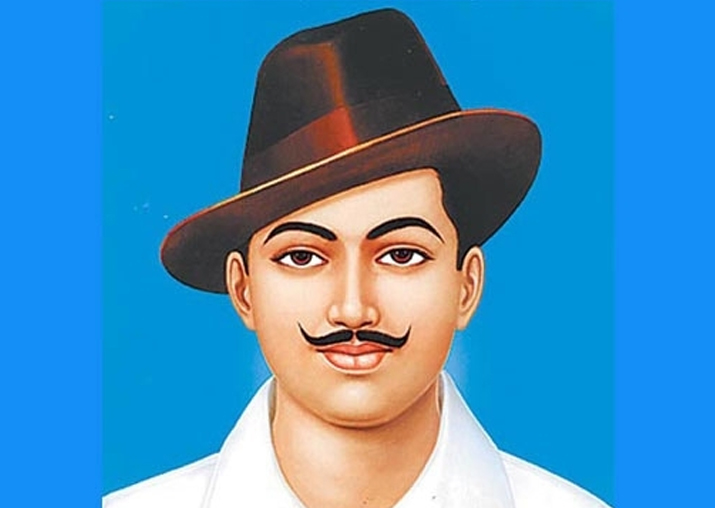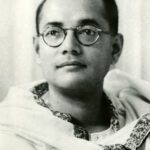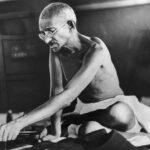Bhagat Singh was an Indian revolutionary socialist who fought for India’s independence from British rule. Born on September 28, 1907, in Banga, Punjab, he became a prominent figure in the Indian freedom struggle during the 1920s and 1930s. Bhagat Singh was a brilliant student who left his studies to join the freedom movement. He was a charismatic leader and a powerful orator who inspired many with his revolutionary ideas. In this article, we will explore the life and legacy of Bhagat Singh, the revolutionary martyr who sacrificed his life for India’s freedom.
Early Life and Education
Bhagat Singh was born into a family of revolutionaries who were actively involved in the freedom struggle. His father, Kishan Singh, was a revolutionary who had taken part in the 1857 uprising against British rule. Bhagat Singh grew up listening to stories of his father’s struggle for freedom, which inspired him to join the movement at a young age.
Bhagat Singh was a bright student who excelled in academics. He attended school in Lahore, where he was introduced to socialist and revolutionary ideas. He was deeply influenced by the works of Karl Marx, Friedrich Engels, and Vladimir Lenin, which shaped his political ideology.
Joining the Freedom Struggle
Bhagat Singh was just 16 years old when he joined the Non-Cooperation Movement launched by Mahatma Gandhi in 1920. However, he soon became disillusioned with Gandhi’s non-violent approach and felt that a more radical approach was needed to overthrow British rule. He was convinced that the only way to achieve freedom was through armed revolution.
In 1928, Bhagat Singh and his comrades, Rajguru and Sukhdev, assassinated a British police officer, John Saunders, in Lahore. They believed that the assassination would serve as a wake-up call for the Indian people and inspire them to rise up against British rule.
Arrest and Trial
Bhagat Singh and his comrades were arrested and charged with murder. They were put on trial in the Lahore Conspiracy Case, which became one of the most high-profile trials in Indian history. Bhagat Singh used the trial as a platform to spread his revolutionary ideas and expose the injustices of British rule.
Despite the overwhelming evidence against them, Bhagat Singh and his comrades did not seek mercy from the British authorities. Instead, they embraced death as a means of inspiring others to fight for freedom. On March 23, 1931, Bhagat Singh, Rajguru, and Sukhdev were hanged in Lahore Central Jail.
Legacy

Bhagat Singh’s sacrifice inspired a whole generation of Indians to join the freedom struggle. He became a symbol of resistance against British rule and a martyr for the cause of Indian independence. His revolutionary ideas and writings continue to inspire people even today.
Bhagat Singh’s legacy also includes his commitment to socialism and his belief in the power of the masses to bring about social change. He believed that true freedom could only be achieved through the overthrow of the capitalist system and the establishment of a socialist society.
Conclusion
Bhagat Singh was a revolutionary martyr who sacrificed his life for the cause of Indian independence. His ideas and writings continue to inspire people even today. He was a true patriot who fought for the freedom of his country and the emancipation of the masses. Bhagat Singh will always be remembered as a hero and a symbol of resistance against British rule.
What was Bhagat Singh’s ideology?
Bhagat Singh was a socialist who believed in the overthrow of the capitalist system and the establishment of a socialist society. He was deeply influenced by the works of Karl Marx, Friedrich Engels, and Vladimir Lenin, and believed in the power of the masses to bring about social change.
What was Bhagat Singh’s role in the Indian freedom struggle?
Bhagat Singh was a prominent figure in the Indian freedom struggle during the 1920s and 1930s. He was a charismatic leader and a powerful orator who inspired many with his revolutionary ideas. He is best known for his role in the Lahore Conspiracy Case and the assassination of a British police officer.
How did Bhagat Singh inspire others to join the freedom struggle?
Bhagat Singh’s sacrifice inspired a whole generation of Indians to join the freedom struggle. He became a symbol of resistance against British rule and a martyr for the cause of Indian independence. His revolutionary ideas and writings continue to inspire people even today.
What was the Lahore Conspiracy Case?
The Lahore Conspiracy Case was a high-profile trial in Indian history in which Bhagat Singh and his comrades were charged with murder for the assassination of a British police officer. Bhagat Singh used the trial as a platform to spread his revolutionary ideas and expose the injustices of British rule.
What is Bhagat Singh’s legacy?
Bhagat Singh’s legacy includes his commitment to socialism and his belief in the power of the masses to bring about social change. He will always be remembered as a hero and a symbol of resistance against British rule. His ideas and writings continue to inspire people even today.







